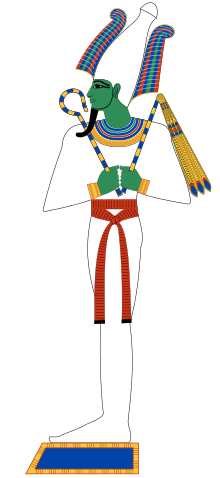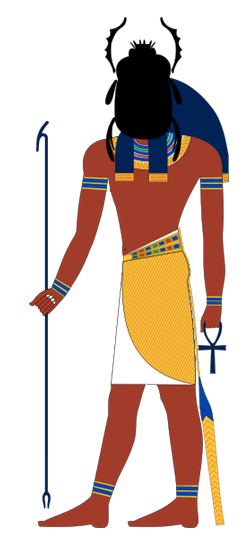In my most recent post I discussed how God passed judgment on the gods of Egypt with the tenth plague, (Ex. 12:12) and perhaps with all of the plague (implied in Numbers 33:4). We looked at the first five plagues and talked about some of the specific gods that the Lord may have passed judgment on with each particular plague. I would like to continue this discussion with plagues six through ten. We will see that God is victorious over all comers.
 |
| Sekhmet |
The seventh plague was the plague of hail. Before bringing this plague, God has Moses tell Pharaoh that he would now bring the full force of his plagues against Egypt and teach the Egyptians that there was no one like Him. God would bring a hailstorm unlike any they had ever seen. He even warns them to bring in the livestock and people out in the fields. Those who feared the Lord obeyed the warning. Those who were foolish enough to ignore it, did not. Moses stretched out his hand and the Lord brought the wort storm in Egypt's history. It beat don everything in Egypt, but left Israel's land of Goshen alone. God is still showing a distinction between those who are His and those who are not. This could be judgment on the goddess Nut, Egypt's goddess of the sky. Nut was married to Geb, god of the Earth, whom God may have already passed judgment on.
 |
| Osiris |
Plague number nine was darkness. The places where the Israelites lived had sunlight, but for three days, the Egyptians wandered around in total darkness. This ninth plague appears to be God's judgment on one of Egypt's most powerful gods, Ra, the god of the Sun. If Ra was that powerful, why did the Egyptians live in darkness while the Israelites lived in light?
Finally, we come to the tenth plague, the death of the firstborn. Now, up to this point, everything has been speculation, but on the tenth plague we have the Biblical statement, that with plague God is bringing judgment on all of the gods of Egypt. It can be pointed out that Horus, a god with a falcon's head was considered to be the protector of Pharaoh. Pharaoh was left unprotected when the destroyer killed his son, as well. We could look at this plague as an attack on Pharaoh himself. He was worshiped as a god in Egypt, and it had been he who asked of Moses, "Who is the Lord that I should obey Him?" But now he knows the answer to that question. The Lord is a god, but The God. The Lord is not a power, but The Power. So finally, with Egypt is ruin and his family and country in mourning, Pharaoh is broken and he lets the Israelites go. In the end, the Lord took on all of the gods of Egypt and prevailed. He always does.
Tom

